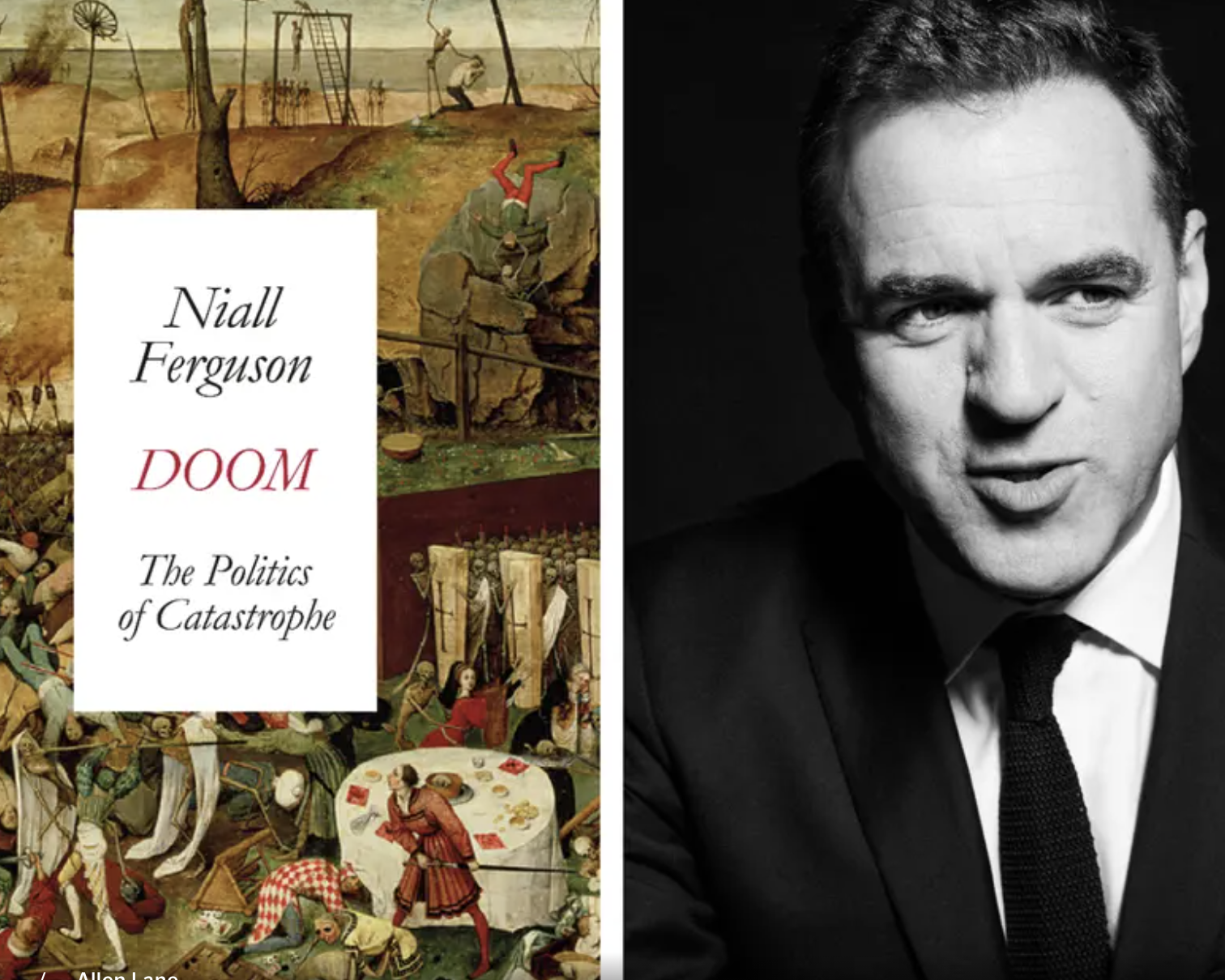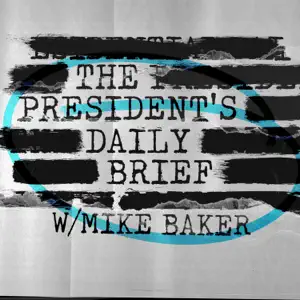
Doom: The Politics of Catastrophe by Niall Ferguson review
(Evening Standard) – From plagues and volcanic eruptions to the current Covid pandemic, mankind has always been faced with catastrophes.
Thought Leader: Niall Ferguson

This piece is by WWSG exclusive thought leader, Niall Ferguson.
Sunday was the fifth anniversary of the first news I heard of “a new outbreak of pneumonia that’s bad” in Wuhan. It came at the end of a lengthy email from my dear friend, Professor Justin Stebbing, one of the world’s leading oncologists.
I recall the shudder of historical recognition with which I read those words. So many pandemics in history have begun with just such a brief reference to a “new outbreak” of a respiratory disease in an Asian city.
It was the first week of January 2020, and I was about to fly to Hong Kong, followed by Taipei and Singapore, for a series of lectures and talks. I’ve written in Doom: The Politics of Catastrophe about the experience of flying towards what became the Covid-19 pandemic and then flying back, only to have the utmost dif
ficulty persuading people in Davos, Washington and Stanford that a global plague was beginning. I shall never know for sure if I was a superspreader of the virus, but I certainly did my best to spread the news.
On January 27, our Greenmantle daily report was entitled “Plagues and Peoples.” It read: “We are now dealing with an epidemic in the world’s most populous country, which has a significant chance of becoming a pandemic. … A severe pandemic is only lightly less likely than a moderate one, and its economic effects would be devastating.” The ballpark figure we proposed for a moderate pandemic was 1.85 million; for a sever one, 42.5 million. The most recent estimates for Covid deaths range from around 7 million up to the Economist’s upper bound of 36.3 million.
That really was a very good piece. I raise a New Year’s glass to Manny Rincon Cruz, who was its author, and another to Justin, whose superhumanly broad and deep medical expertise was invaluable to us throughout that strange—and now almost incredible—plague year.
The old year ended, and the new year began, in the way that suits me best: musically. I am a proudly amateur and amateurish musician. My competence on the double bass was hard-won in my undergraduate days. I do not play nearly often enough to be good, but I can still manage to be not bad.
The septet to which, for 41 happy years, I have belonged goes by the name “A Night in Tunisia.” We have learned over that period of ensemble playing two important things. First, try so far as possible to play original material, rather than jazz standards. That way your audience has never heard Charlie Parker or Miles Davis playing the same tune much, much better than you ever could.
The new thing we learned this winter was not to trust musical scoring software. The most prolific composer in the band, our pianist Keith Broninski, many years ago wrote a delectable ballad, “Deep Green.” I usually adore playing it—but not this December. It sounded like cats not only in heat but suffering from severe feline Covid.
It turned out that the scoring software was to blame for transposing the rhythm section a minor third away from the horns.
A somewhat different musical challenge arose in church on Sunday evening. I am a very raw recruit to the choir that sings, when a quorum can be assembled, at the three churches in our local benefice. Choral standards must have slipped, as I distinctly recollect my dismal failure to pass the audition for the Glasgow Academy choir back in 1974. (They made me introduce the carols instead, which was the start of my career as a public speaker.)
Or perhaps my voice has improved with age. At any event, there I was on Sunday evening, standing in the frigid choir-stalls, singing Compline—“An Order for Night Prayer in Traditional Language”—for the first time.
Compline is a very ancient service, its name deriving from a Latin completorium (completion), and dating back as far as the 6th century, if not the 4th, depending on whether you think St. Benedict or St. Basil deserves the credit. “It is above all a service of quietness and reflection before rest at the end of the day,” we Anglicans are told, rather sternly. “It is most effective when the ending is indeed an ending, without additions, conversation or noise. If there is an address, or business to be done, it should come first.” After the service, one is supposed to “depart in silence,” which does not come naturally to us Shire folk.
The challenge for the novice chorister is that the sheet music for Compline uses the old notation for plainsong, which I had never previously had to decipher, much less sing. The stave has only four lines rather than the modern five. The clefs are different, too. The notes are written as little black squares or diamonds, each one of which is called a punctus. When one syllable has two notes, you get a neum.
Having just flown from Bozeman to London via Los Angeles, I was certainly not at my most alert, but somehow I chanted more or less the same notes as the other male choristers. My undoing came with the unexpected addition of a tremendously tricky and relatively modern hymn, Henry Walford Davies’s “God Be in My Head” (1910).
Forty-one years of jazz had prepared me for plainsong, but not for sight-reading the baritone part of that Edwardian extravaganza.
Thomas Hardy is the writer I have come to admire above all others in the past few years. For Christmas, my wife gave me a collection of short stories by various authors that included what seemed to me one of his most exquisite miniatures.
As I read it, I admired the way Hardy conjured up both people and places with uncanny verisimilitude from the printed page. It was only after I had finished “Malachi’s Cove” that I realized with a start that the author was not Hardy at all, but Anthony Trollope. It was the previous story in the collection, “The Withered Arm,” that was by Hardy.
I shall give nothing away. Suffice to say that the final, quite unexpected page of “Malachi’s Cove” reduced me to tears of relief. The concerning thing is that I don’t think I would have been so moved had I known it was Trollope I was reading, as I would have been much less surprised by the ending.
Doom: The Politics of Catastrophe by Niall Ferguson review
(Evening Standard) – From plagues and volcanic eruptions to the current Covid pandemic, mankind has always been faced with catastrophes.
Thought Leader: Niall Ferguson
Michael Baker: Ukraine’s Faltering Front, Polish Sabotage Foiled, & Trump vs. Kamala
In this episode of The President’s Daily Brief with Mike Baker: We examine Russia’s ongoing push in eastern Ukraine. While Ukrainian forces continue their offensive…
Thought Leader: Mike Baker
Peter Zeihan: What Does the Future Hold for Taiwan and Semiconductors?
From Peter Zeihan: Taiwan has positioned itself as the dominant player in the semiconductor industry, but what would happen if a conflict with China broke…
Thought Leader: Peter Zeihan

